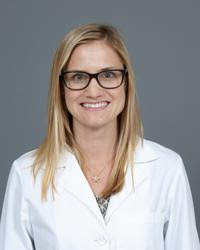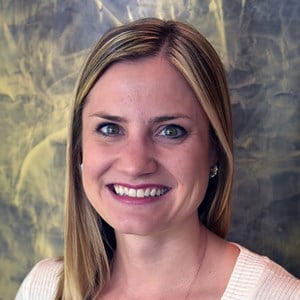One word that best describes how you work?
Collaboratively
Current mobile device
iPhone 11 Pro
Computer
MacBook Pro
What is something you are working on now?
The Impact of Digital Badges on Motivation in Asynchronous Learning
How did you come up with this Idea/Project?
When COVID hit, we had to think creatively on how to engage learners in an online format. Having done a fellowship in Multimedia, Design, Education Technology I was really excited to experiment with different techniques. My main goal is always to create a sense of engagement, even when there is limited ability to do so in a traditional way. One thing I’d seen done in a limited fashion are badges to reward learners, so I decided to explore digital badges and learned they’re becoming increasingly popular in the K-12 literature and other fields. I adopted this to create our own asynchronous curriculum with a badge system to identify learners who were engaging well in the material, and who were performing highly on knowledge-based quizzes.
What’s your office workspace setup like?
I finally have a dedicated office space in my home, which I love! I work best when I’m on my own away from distractions because I’m a typical EM personality. The window in my office looks out into our yard and the front street which is nice for a mental break. I like to keep my desktop clean (clean desk = clean brain) and just have my laptop and a notepad available to jot down quick thoughts or reminders. 
What’s your best time-saving tip in the office or home?
Blocking off chunks of time to accomplish xyz task is helpful for me, as I often have multiple projects and/or tasks on any one given day. Prioritizing is important. I became pretty good at task-switching during my fellowship when I was juggling a lot of non-clinical projects.
What’s your best time-saving tip regarding email management?
I use a delete-flag-archive system, where anything not important in the future is immediately deleted, things that need close follow up are flagged, and everything else is filed into its relevant folder. I have 6-7 folders which I frequently use. One really helpful folder that you don’t always think about is for IDs/passwords!
What apps do you use to keep yourself organized?
I love the Things app for task management. It merges with my Google Calendar and allows you to set due dates for upcoming tasks as well as to documents to-do lists for bigger or more long-term projects. It is my peripheral brain! I also have a whiteboard in my office that displays my big projects. I like checking things off as a sense of accomplishment.
How do you stay up to date with resources?
Twitter is probably my main resource for connecting with colleagues about new ideas…I almost exclusively following folks in medical education. I use Journal Feed for quick synopses of review articles. And of course EMRAP.
What’s your best time-saving tip in the ED?
Try not to delay tough cognitive decision points that will affect the workup/algorithm that you go down. When you are not sure what to do, take a step back to think, call a consultant, or ask the advice of a colleague.
ED charting: Macros or no macros?
Yes! For example, I have an abscess I&D macro that contains less than 5 variables to fill out. Though, I dislike macros for more complicated encounters.
Advice
-
What’s the best advice you’ve ever received about work, life, or being efficient?
[Great creative minds] think like artists but work like accountants. – Cal Newport, “Deep Work”.
I personally love to think about new ideas or projects, but unfortunately that does not equate to success. Success is the ability to organize yourself to be productive. This is a work in progress for all of us!
-
What advice would you give other doctors who want to get started, or who are just starting out?
Get involved in a bigger way. Think about serving on a hospital committee or taking a leadership position. It will give you a new experience and accelerate your growth. For me, that was joining the EMRA Education committee, which ultimately led to me serving as the Director of Education for their Board of Directors. It was and has been a life changing experience.
-
Is there anything else you’d like to add that might be interesting to readers?
Find mentors that believe in you. I was told by an advisor that if I wanted to do med ed, I had to have my entire career path laid out and was highly discouraged from considering it. A two year fellowship and an (almost completed) masters later, I’m very glad I trusted my instinct and did not listen to their advice. Eventually I looked elsewhere and found mentors who were willing to help me achieve my goals.
Who would you love for us to track down to answer these same questions?
- Kat Ogle @DrKittyKat
- Kristy Schwartz @kaynani32
- Zach Jarou @zachjarou
- John Eicken @MedEd_Tech
Read other How I Work Smarter posts, sharing efficiency tips and life advice.
Author information
The post How I Work Smarter: Sara Dimeo, MD appeared first on ALiEM.



